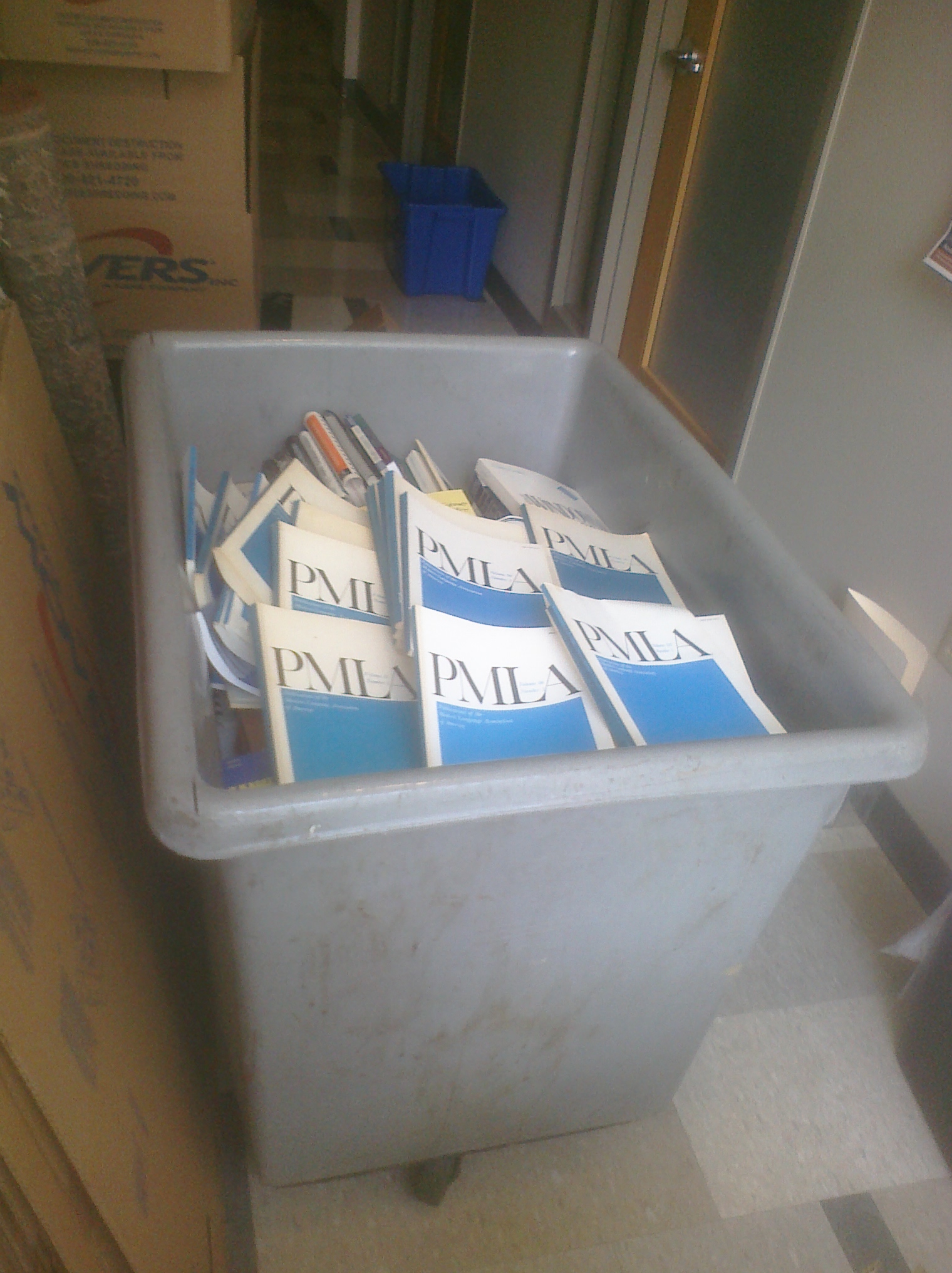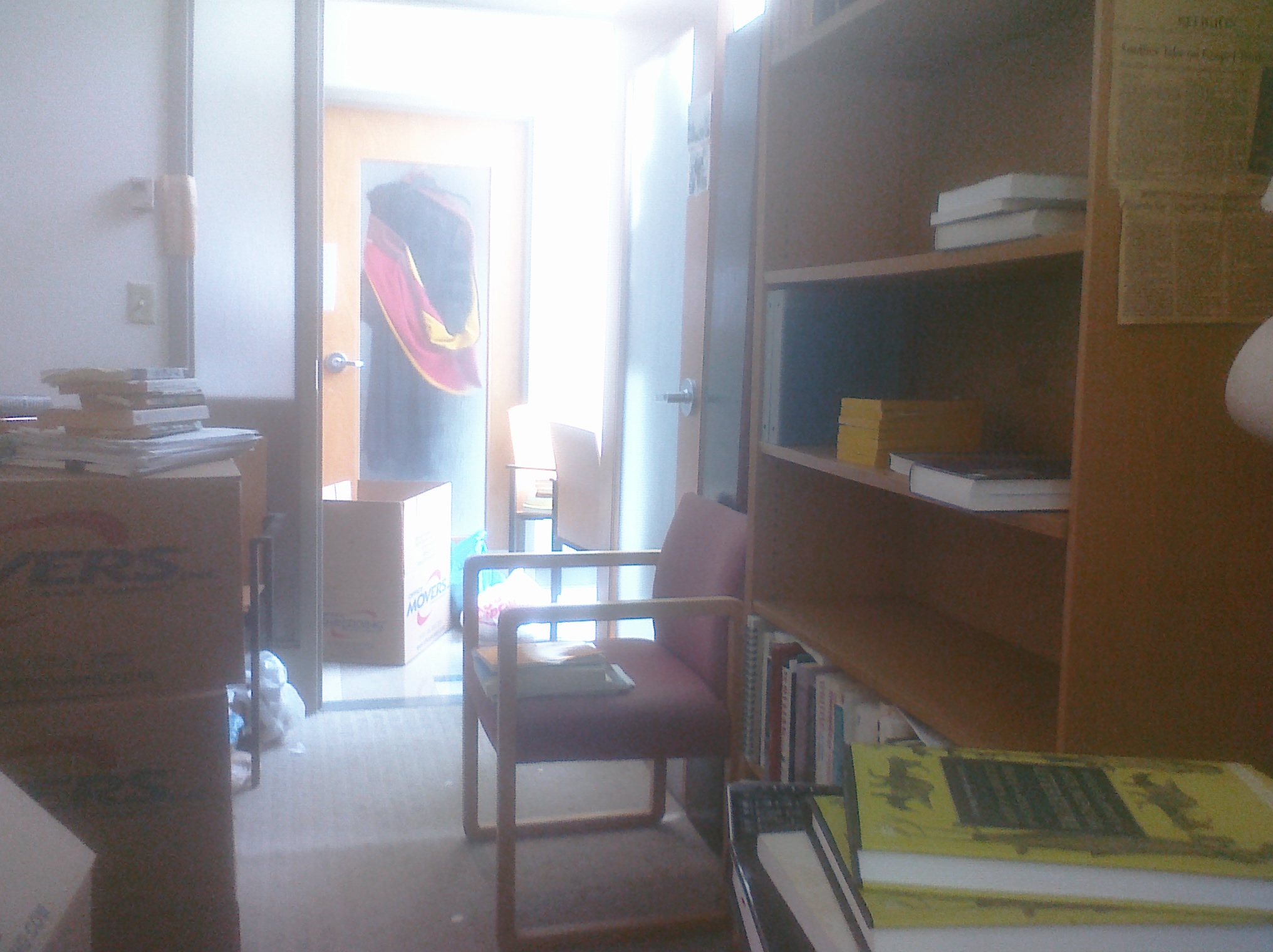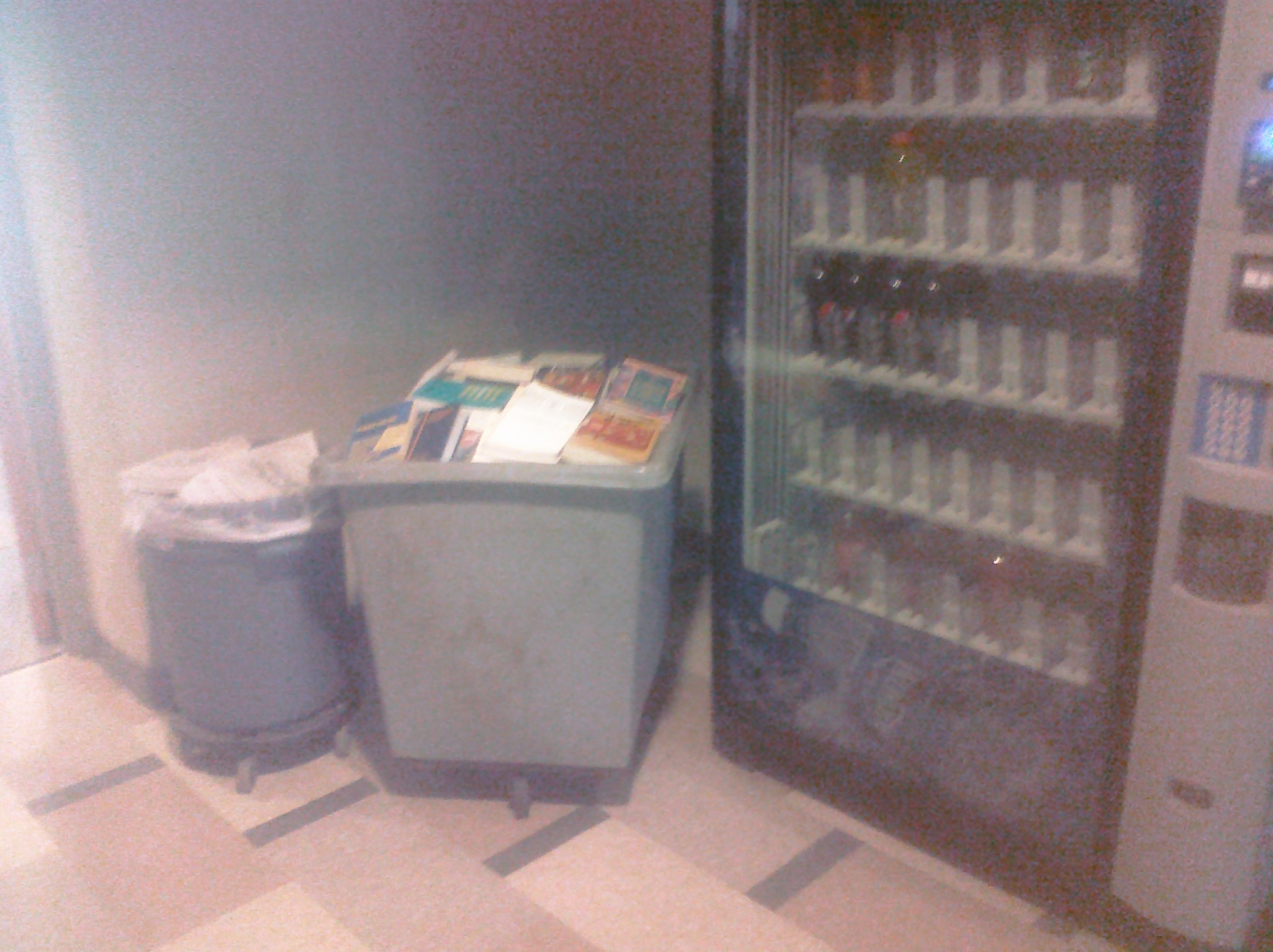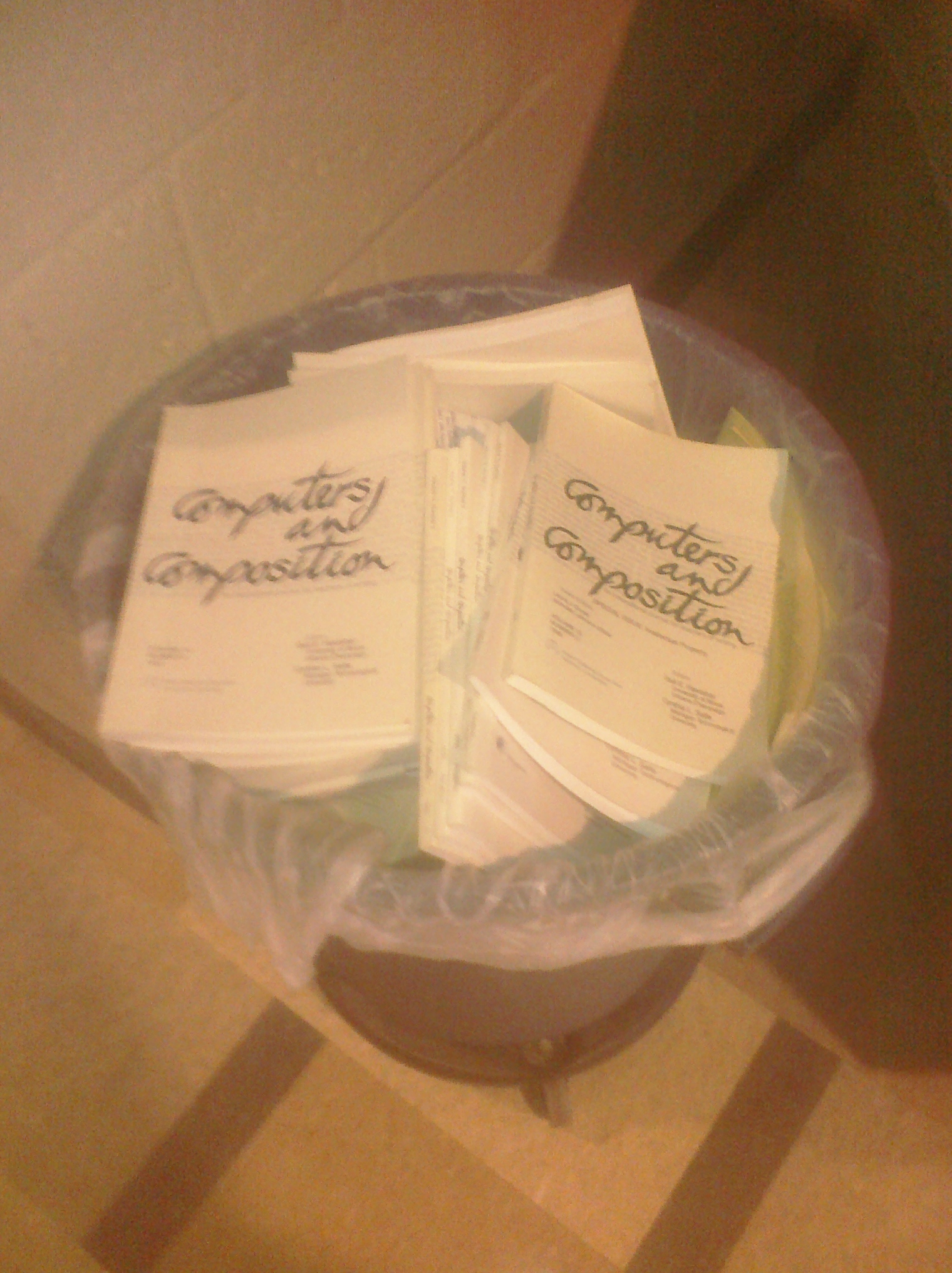

Moving Office in the Digital Age
It's an old story, perhaps first told by Sven Birkets in "Into the Electronic Millennium" (The Gutenberg Elegies, 1994). After 25 years of teaching, 15 of them from Van Meter G57, I'm moving to a new office one floor up. Don't ask why. FMS commands and I obey. Suddenly, despite my love of books and commitment to the cooler, slower, more reliable access to scholarship on paper, I'm facing a series of equations that all point toward losing almost all of it. Smaller office = fewer linear feet of shelves. Older me = weaker back for packing heavy items. Result = unthinkably tough "de-accessioning" choices become easy. Anything accessible online and not overwhelmingly valuable in its print form goes out. Anything older than 2010 and not valuable for its historical importance goes out. When the Goucher Library moved to its new location several years ago, I remember watching them fill up dumpster on the back loading dock with hundreds of bound printed documents. Now I'm doing it. No choice I can see. Compare the fate of manuscripts when printers had finished using them to set type for the earliest printed books. Once the edition had been proofed, what good were the MS leaves? Gone to the bindery, (nearly) every one. Vellum so very useful for strengthening the bindings of newly printed books. (Few surviving manuscripts have been identified with compositors' "casting off" marks--the tics marked where a line of type would end in the MS copy.) Now, in its turn, print is recycled for Starbucks cups and eco-friendly paper towels.
| Goodbye to Print | View from Inside G57 (Next stop, VM 141) |
 |
 |
| Scholarly Publication Is the Cornerstone of Academic Authority | Unintentional Irony |
 |
 |
Her biš feoh lęne, her biš freond lęne,
Here wealth is fleeting, here friend is fleeting,
her biš mon lęne, her biš męg lęne,
here man is fleeting, here
kinsman is fleeting,
eal žis eoržan gesteal idel weoržeš!
all this earthly structure shall be emptied!
Lines 108-10 of a Poem Usually Called Wanderer, probably more properly "Anhaga" ("solitary [one]"), its name for the speaker of these lines (Exeter Book, before 1050 CE)